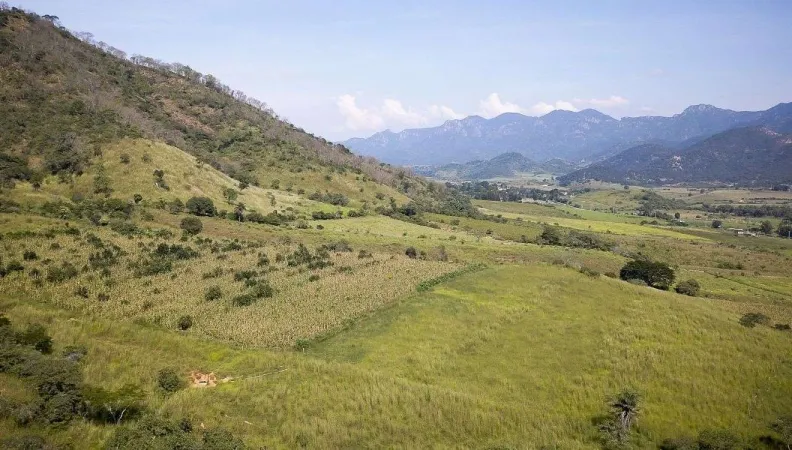Share the page
AFD Support for Biodiversity in Mexico: Robust Assessments and Concrete Results
Published on

AFD has just assessed the impact of two public policy loans – named "Biomex" and "Bioconnect" - issued to the Mexican government in 2012 and 2017 for biodiversity conservation. Though valuable lessons are being learned, the findings are encouraging.
Mexico is one of the richest countries on the planet in terms of biodiversity: its vast territory includes tropical areas that extend from sea level to altitudes of more than 5,000 meters; from arid areas to humid zones. Overall, it is home to a wide variety of terrestrial and aquatic biomes.
The country is also characterized by the diversity of its crops: it is one of eight regions in the world with the highest biodiversity of cultivated plants, and has been a center for the dissemination of major crop species (corn, squash, and common bean). But this natural heritage, on which 20% of the Mexican population depends, is now threatened by intensive agriculture, pollution, climate change, and land use changes linked to development.
Engaging in dialogue
AFD's mandate in Mexico has focused on the environment since we set up a local office in 2009, with the aim of better reconciling the protection of nature with development issues.Two loans were set up to preserve biodiversity, as a follow-up to loans set up to combat climate change.
They were intended to strengthen Mexico's policy of supporting protected natural areas (Biomex, €60 million) and to support the development of a national policy on ecological connectivity (Bioconnect, €80 million).
Biomex and Bioconnect are so-called "public policy loans" (PPLs) which aim to strengthen the development or implementation of public policies by creating a space for dialogue between AFD and national authorities. A PPL has three components: loan financing, policy dialogue, and technical assistance.
New territorial management framework
The evaluation of these tools, commissioned by AFD's Evaluation and Learning Department and conducted by external evaluators, has shown significant results. One of the tangible achievements of Biomex's technical assistance, financed with the support of the French Global Environment Facility (FGEF), is the creation of a new territorial management model in the state of Jalisco. It’s inspired by the French regional nature park model, and supported by a twinning with the Parc naturel régional des Volcans d'Auvergne.
This management model, called "Paisaje biocultural" or “organic landscapes”, complements the existing system of natural protected areas. It aims to promote sustainable agricultural production chains, and make the territories attractive while including the local communities in its maintenance.
See also: A partnership for biodiversity in Mexico
With Mexico's federal system of government, which leaves regional planning to state governments, such a model cannot be applied on a national scale. But as the evaluation shows, it was incorporated in 2019, into the legal framework of the state of Jalisco, making it a territorial management tool that guarantees its sustainability while paving the way for its adoption in other states.
Ecological connectivity, an increasingly important concept
AFD funding has supported "voluntary conservation areas," another territorial management tool. These smaller areas create corridors between protected areas according to the principles of "ecological connectivity," which promotes a form of physical and functional continuity between natural areas to allow species migration and maintain ecosystem functionality.
The evaluation points out that through this support, the concept of "ecological connectivity," which is not enshrined in Mexican legal frameworks, has gained more prominence in the government’s agenda.
Facilitating institutional dialogue
Thanks to these two loans, AFD has also strengthened its role as a partner in the environmental sector in Mexico and its alliance with the Mexican Ministry of Finance. The loans made it possible to share knowledge and expertise, like exchanges with the French Federation of Regional Nature Parks, and to open new spaces for dialogue between French and Mexican partners.
A steering committee was set up to ensure project coordination and to help implement the technical assistance for the Bioconnect loan to support ecological connectivity, led by a facilitator recruited by AFD. Although there is room for improvement, this mechanism is an innovative governance mechanism that has fostered inter-institutional dialogue and opened up new spaces for collaboration, particularly with the public.
Ecosystem of actors
Thus, the PPLs for biodiversity conservation are part of AFD's long-term intervention strategy in Mexico for sustainable development. Each loan is a continuation of the previous one, depending on the opportunities for action identified with the partners and the needs identified by the institutions. The flexibility and agility demonstrated by the technical assistants in charge of implementing these projects have contributed to creating an ecosystem of actors who are increasingly aware of the challenges of protecting biodiversity.
Lessons for the future
While the evaluation noted progress in the design of Biomex and then Bioconnect compared to AFD's first climate loans to Mexico in 2009, recommendations were made to improve the design of future biodiversity interventions in Mexico. In particular, a more robust system would be required to monitor the results, in dialog with the Mexican authorities, of the policies aiming to protect biodiversity, such as creating protected areas, improving their management, and the conservation of noteworthy species.
The next AFD loan, in line with the previous ones, will seek to take these lessons into account, and take advantage of the network of actors to apply such observations to fishing and agriculture.
